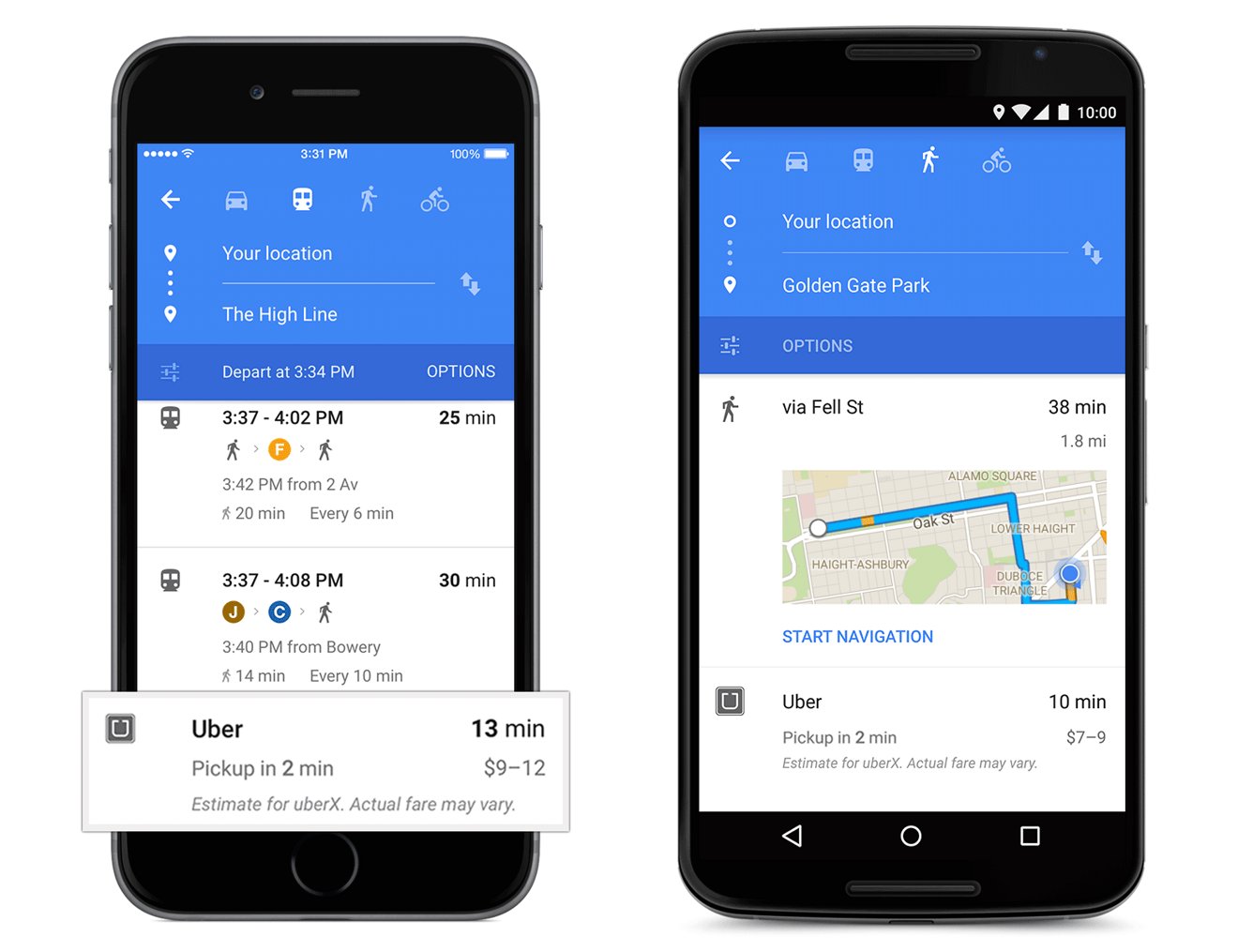The once-tight relationship between Google and ridesharing service Uber has reportedly frayed as the two companies make moves into each others' territory, a split reminiscent of the tension between Google and Apple over Android.
Google senior executive David Drummond — Â who sits on Uber's board of directors — Â has informed the startup's leadership that Google is exploring the launch of an Uber-like service, according to Bloomberg. At the same time, Uber has partnered with Carnegie Mellon University to open a Pittsburgh facility dedicated to the development of self-driving cars, long a Google research priority, as noted by TechCrunch.
Google's new project is reportedly already functional in a limited trial, with employees at the Mountain View firm using it regularly. Uber's research center is in its nascent stages, but the company is said to have begun staffing it up and made a "multi-hundred-thousand dollar investment in third-party engineering workstations."
Both moves are logical, given the companies' long-term aspirations, but the apparently swift end to what was a close partnership is somewhat surprising.
Google is one of Uber's largest investors and maintains a seat on the board, currently held by chief legal officer David Drummond.
Google's venture capital arm has invested more than $250 million in Uber, by far the search giant's largest outside investment before it took part of a $1 billion stake in Elon Musk's SpaceX earlier this month. Drummond's seat on Uber's board was acquired as part of the former deal, and the board is thought to be deciding if they should ask him to resign.
Uber leans heavily on Google Maps for routing its drivers, and the Google Maps app for iOS and Android includes Uber as a routing option for consumers. It is unclear how much revenue is driven by this integration, but it was hailed as a milestone during its announcement.
Google has been through a similar transition before, when then-CEO Eric Schmidt — Â at the time a member of Apple's board of directors — Â informed his colleagues of Google's intention to develop an iPhone competitor. Schmidt began recusing himself from board meetings where the iPhone was discussed, and eventually resigned from Apple's board in 2009.
The situation, combined with the similarities between iOS and Android upon the latter's release, prompted late Apple CEO Steve Jobs to declare "thermonuclear war" on Google.
Apple later evicted all Google services from the iPhone's home screen, replacing Google Maps with a home-grown solution and forcing YouTube into the App Store. Google continues to be the default search provider for mobile Safari — Â a position for which Google pays Apple — but even that is thought to be up for grabs.
 Sam Oliver
Sam Oliver







-m.jpg)






 Christine McKee
Christine McKee
 Malcolm Owen
Malcolm Owen

 Charles Martin
Charles Martin


 Mike Wuerthele
Mike Wuerthele



-m.jpg)






53 Comments
Go for it, Uber. I'll just laugh and laugh and laugh as Google struggles with their post-search growth plan.
Now if Google can make its self-driving car function like Uber.
[quote name="InteliusQ" url="/t/184619/google-poised-for-an-apple-like-feud-with-uber-over-ridesharing-and-self-driving-cars#post_2670196"]Now if Google can make its self-driving car function like Uber.[/quote] They want their self driving cars to assault and kidnap their passengers? They want self driving hit-and-run machines? They want to track where people go and interpolate what they are doing? (Well, yeah. I guess they would be hot for that last one. They are Google...) [URL]http://www.thedailybeast.com/articles/2014/11/19/the-ten-worst-uber-horror-stories.html[/URL]
What's the lesson here, folks?
What a low life, despicable company.
I hope to never be in a self driving car. At my age and the absolute craziness of the drivers in my home vicinities, probably not going to happen in my lifetime anyway. I already have my own private driver in a few of the cities I frequent. I did use Uber twice so far and it was fine.